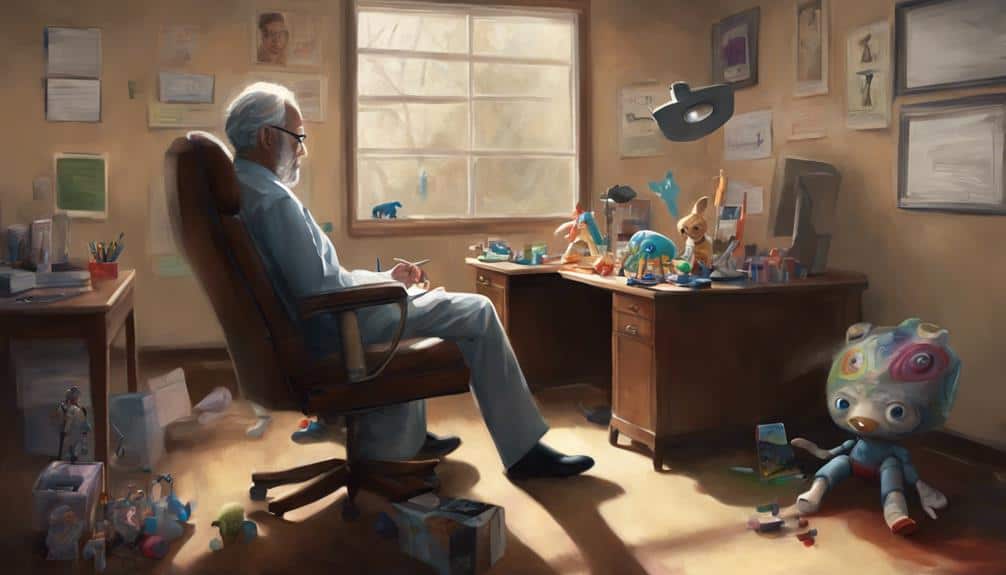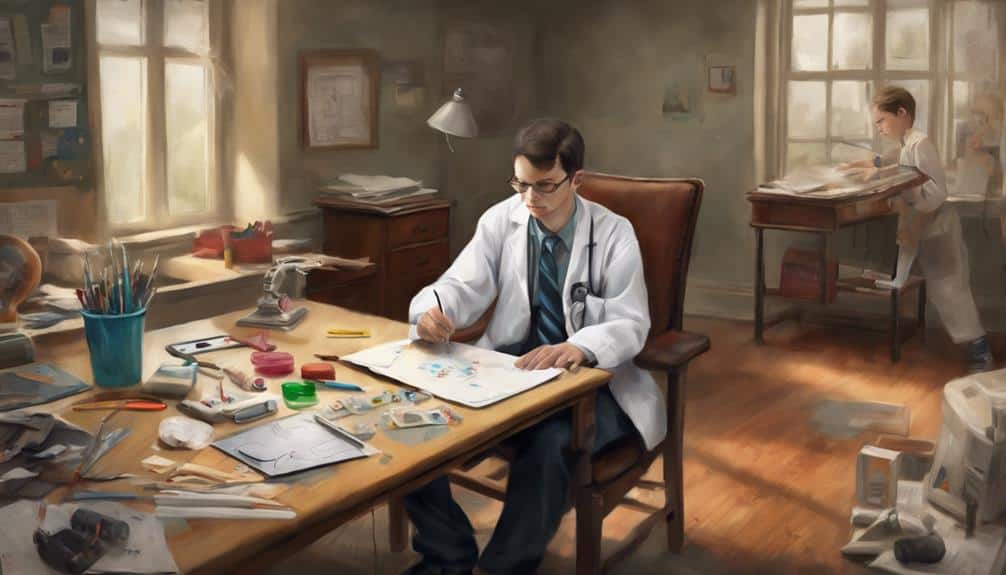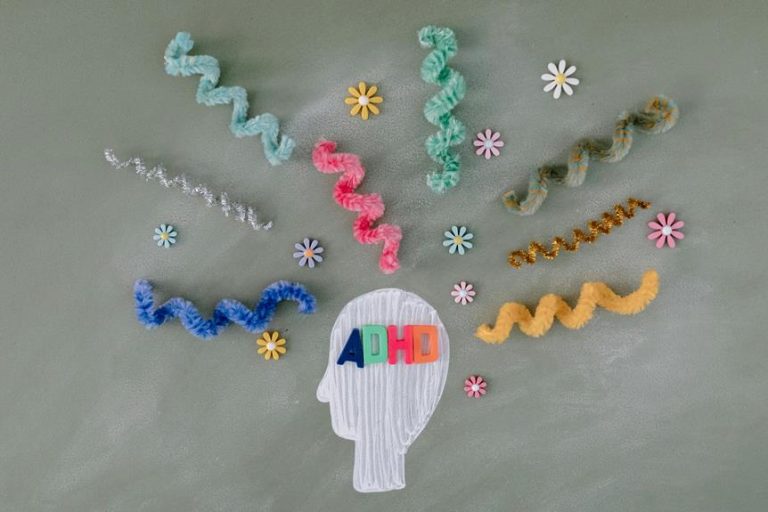Can a Psychiatrist Diagnose Autism
As the saying goes, 'It takes a village,' when it comes to diagnosing autism, and psychiatrists can indeed play a vital role in this intricate process. However, the question of whether a psychiatrist can singularly diagnose autism may not have a straightforward answer.
The complexities of autism spectrum disorder often require a multidisciplinary approach, involving various specialists working together to unravel its intricacies. So, how exactly does a psychiatrist fit into the puzzle of diagnosing autism? Let's explore the intricate web of roles and responsibilities that psychiatrists bring to the table in the domain of autism diagnosis.
Key Takeaways
- Psychiatrists play a crucial role in diagnosing autism in adults.
- Utilize standardized tools and assessments for accurate diagnoses.
- Collaborate with other professionals for comprehensive evaluations.
- Offer post-diagnosis support and guidance for individuals with autism.
Role of Psychiatrists in Autism Diagnosis

When diagnosing autism in adults, psychiatrists play an important role through conducting thorough evaluations and assessments. Psychiatrists, equipped with specialized training in autism, are adept at utilizing standardized tools to diagnose autism spectrum disorders in adults.
Through exhaustive assessments, psychiatrists can provide valuable insights into the behavioral and social aspects of autism, aiding in accurate diagnoses. Collaboration with other professionals, such as psychologists or developmental specialists, further enhances the diagnostic process by making sure a holistic evaluation.
Post-diagnosis, psychiatrists offer vital support and guidance to individuals, helping them comprehend and navigate the implications of an autism diagnosis. This collaborative approach, combined with the expertise of psychiatrists in evaluations and assessments, makes sure that adults with autism receive the necessary care and support tailored to their specific needs.
Diagnostic Criteria for Autism by Psychiatrists

Psychiatrists employ standardized tools and evaluations, such as the Autism Diagnostic Observation Schedule (ADOS), to evaluate individuals for autism spectrum disorders based on criteria outlined in the Diagnostic and Statistical Manual of Mental Disorders (DSM-5).
When diagnosing autism, psychiatrists focus on specific aspects:
- Social Communication Skills: Judging an individual's ability to engage in social interactions, maintain conversations, and understand nonverbal communication cues.
- Repetitive Behaviors: Examining the presence of repetitive movements, insistence on sameness, and highly focused interests.
- Interest Patterns: Scrutinizing the individual's restricted interests and unusual attachments to specific objects or topics.
- Deficits in Social Interaction: Identifying difficulties in developing and maintaining relationships, as well as understanding social norms.
- Diagnostic Tools: Utilizing tools like the ADOS to aid in observing and recording behaviors that are indicative of Autism Spectrum Disorder (ASD).
These criteria help psychiatrists make accurate diagnoses and provide appropriate interventions for individuals with autism.
Importance of Specialized Professionals in Diagnosis

Specialized professionals play a critical role in diagnosing autism due to their expertise, training, and experience in recognizing the nuances of autism spectrum disorders.
Their specialized knowledge allows for accurate assessments using tailored diagnostic criteria for both children and adults, ensuring precise diagnoses.
Collaborative efforts among these professionals result in thorough care and support for individuals with autism, ultimately improving diagnostic accuracy and timely interventions.
Expertise for Accurate Diagnosis
For an accurate diagnosis of autism, professionals with specialized training in the disorder play an essential role. Psychiatrists and psychologists with specific expertise in autism diagnosis can offer invaluable insights and assessments. Here are key points highlighting the importance of specialized professionals:
- Expertise in Recognizing Signs: Professionals with specialized training can identify unique signs of autism in individuals of all ages.
- Thorough Evaluations: Through specialized training, these experts conduct thorough evaluations using standardized assessment tools tailored for autism diagnosis.
- Differentiation from Other Conditions: Professionals with autism expertise can distinguish between autism and other mental health conditions, ensuring precise diagnosis and suitable interventions.
- Increased Likelihood of Accurate Diagnosis: Seeking evaluation from professionals with specific training in autism enhances the chances of receiving a precise diagnosis.
- Personalized Care Plans: Specialized professionals can develop personalized care plans based on accurate autism diagnoses.
Training for Nuanced Understanding
Professionals trained in autism diagnosis demonstrate a nuanced understanding through specialized skills in recognizing subtle indicators of the disorder in adults. Specialized training equips psychologists and psychiatrists with the expertise needed to accurately assess and diagnose autism spectrum disorders in adult populations.
By honing their abilities to differentiate between autism and other mental health conditions, these professionals can provide precise diagnoses. Utilizing validated assessment tools, specialized professionals make certain that their evaluations are thorough and accurate, leading to appropriate interventions and support for individuals with autism.
This targeted training not only enhances the professionals' diagnostic capabilities but also facilitates a deeper understanding of the unique challenges faced by adults with autism, ultimately improving the quality of care and support they receive.
Experience in Diverse Cases
In diagnosing autism, the experience of professionals in diverse cases plays a pivotal role in ensuring accurate assessments and tailored treatment plans. Child and Adolescent Psychiatrists, with their specialized training, bring a wealth of expertise to the table. Here are five key reasons why their experience is critical in autism diagnosis:
- Expertise in differentiation: Ability to distinguish autism from other developmental or behavioral conditions.
- Recognition of subtle signs: Trained to identify nuanced signs and symptoms of autism in individuals of all ages.
- Thorough assessments: Capable of conducting thorough evaluations to provide precise autism diagnoses.
- Tailored treatment plans: Experience allows for the customization of treatment strategies specific to each individual.
- Accurate diagnosis: Proficiency in making precise and reliable autism diagnoses.
Challenges in Autism Diagnosis by Psychiatrists

Diagnosing autism as a psychiatrist can be challenging due to the misinterpretation of behaviors and the lack of specialized training in developmental disorders.
The complexity of the diagnostic criteria for autism may require expertise beyond typical psychiatric practice, leading to potential misdiagnosis or oversight.
Collaboration with professionals possessing specific expertise in autism may be pivotal for accurate diagnosis and thorough care.
Misinterpretation of Behaviors
When evaluating individuals for autism, psychiatrists may encounter challenges related to the misinterpretation of behaviors that can complicate accurate diagnosis. Psychiatrists may misinterpret autism-related behaviors as solely psychiatric symptoms, leading to misdiagnosis. Challenges may arise when psychiatrists lack training in recognizing subtle signs of autism in adults.
Overlooking key autism indicators like sensory sensitivities and social communication difficulties can affect accurate diagnosis. Misunderstanding repetitive behaviors or special interests as psychiatric conditions can hinder autism identification by psychiatrists. Failure considering developmental history and lifelong patterns of behavior may contribute to overlooking autism in psychiatric evaluations.
Lack of Specialized Training
The misinterpretation of behaviors in autism evaluations can be compounded by the lack of specialized training in diagnosing autism among psychiatrists compared to other professionals like developmental pediatricians or psychologists. Training in autism diagnosis isn't typically included in psychiatric residency programs, leading to limited exposure to autism assessment tools and techniques.
Psychiatrists may mainly focus on mental health conditions such as depression and anxiety rather than developmental disorders like autism. Collaborating with specialists such as developmental pediatricians or psychologists could enhance the accuracy of autism diagnoses by psychiatrists.
Collaboration With Other Healthcare Providers

Collaborating with various healthcare professionals enriches the diagnostic assessment process for autism by incorporating diverse perspectives and specialized expertise. This collaborative approach allows for a thorough and accurate evaluation of symptoms and behaviors associated with autism.
- Developmental pediatricians, child psychologists, pediatric neurologists, and child and adolescent psychiatrists often work together in diagnosing autism.
- Collaboration with other healthcare providers guarantees a detailed and precise assessment of autism symptoms and behaviors.
- A multidisciplinary team approach enhances the diagnostic process by bringing together different perspectives and expertise.
- Each professional contributes unique insights that can lead to a more holistic understanding of an individual's condition.
- By taking into account all aspects of an individual's mental and physical health, the collaborative effort aims to provide a thorough diagnosis of autism.
Future Trends in Autism Diagnosis and Psychiatry

Incorporating advancements in neuroimaging and genetic testing is pivotal for enhancing the precision of autism diagnosis within the domain of psychiatry. Future trends in autism diagnosis by psychiatrists involve the development of more accurate tools and techniques, such as personalized medicine and tailored treatment plans based on individual characteristics.
Collaborative approaches, including multidisciplinary teams and AI technology, are expected to streamline and improve the diagnostic process for autism. The focus on early identification and intervention strategies continues to shape the future landscape of autism diagnosis, aiming to provide timely support and interventions for individuals on the autism spectrum.
Frequently Asked Questions
Can a Psychiatrist Tell if You Have Autism?
I can identify early signs, assess social skills, recognize communication difficulties, evaluate sensory sensitivities, observe repetitive behaviors, recommend school accommodations, determine where an individual falls on the autism spectrum, provide adult diagnosis, address misdiagnosis risks, and offer treatment options.
Can a Psychiatrist Diagnose ADHD or Autism?
Yes, a psychiatrist can diagnose ADHD or autism based on observations, history, and assessments. Collaborating with other professionals, they guarantee accurate diagnoses. Treatment plans may include early intervention, behavioral therapy, school accommodations, social skills, sensory processing, and more.
Can a Psychiatrist Diagnose a Child With Autism?
Can a psychiatrist diagnose a child with autism? Evaluating behavioral patterns, developmental history, and social interactions allows for early intervention, behavioral therapy, speech delay management, social skills development, sensory issue understanding, genetic testing, school accommodations, parent support, and tracking developmental milestones.
Is It Worth Getting an Autism Diagnosis as an Adult?
Late diagnosis of autism offers opportunities for self-discovery, identity acceptance, and seeking support. It can lead to workplace accommodations, exploring therapy, understanding family dynamics, addressing mental health, overcoming social challenges, and accessing community resources for improved quality of life.
Conclusion
In the intricate puzzle of autism diagnosis, psychiatrists serve as important pieces, offering insights into the complex emotional and behavioral aspects of the condition.
As they navigate the intricate web of symptoms and co-occurring mental health conditions, psychiatrists provide a unique perspective that enhances the diagnostic process.
Through collaboration and specialized expertise, these mental health professionals play an essential role in improving the well-being of individuals with autism, shaping a clearer path towards understanding and support.







